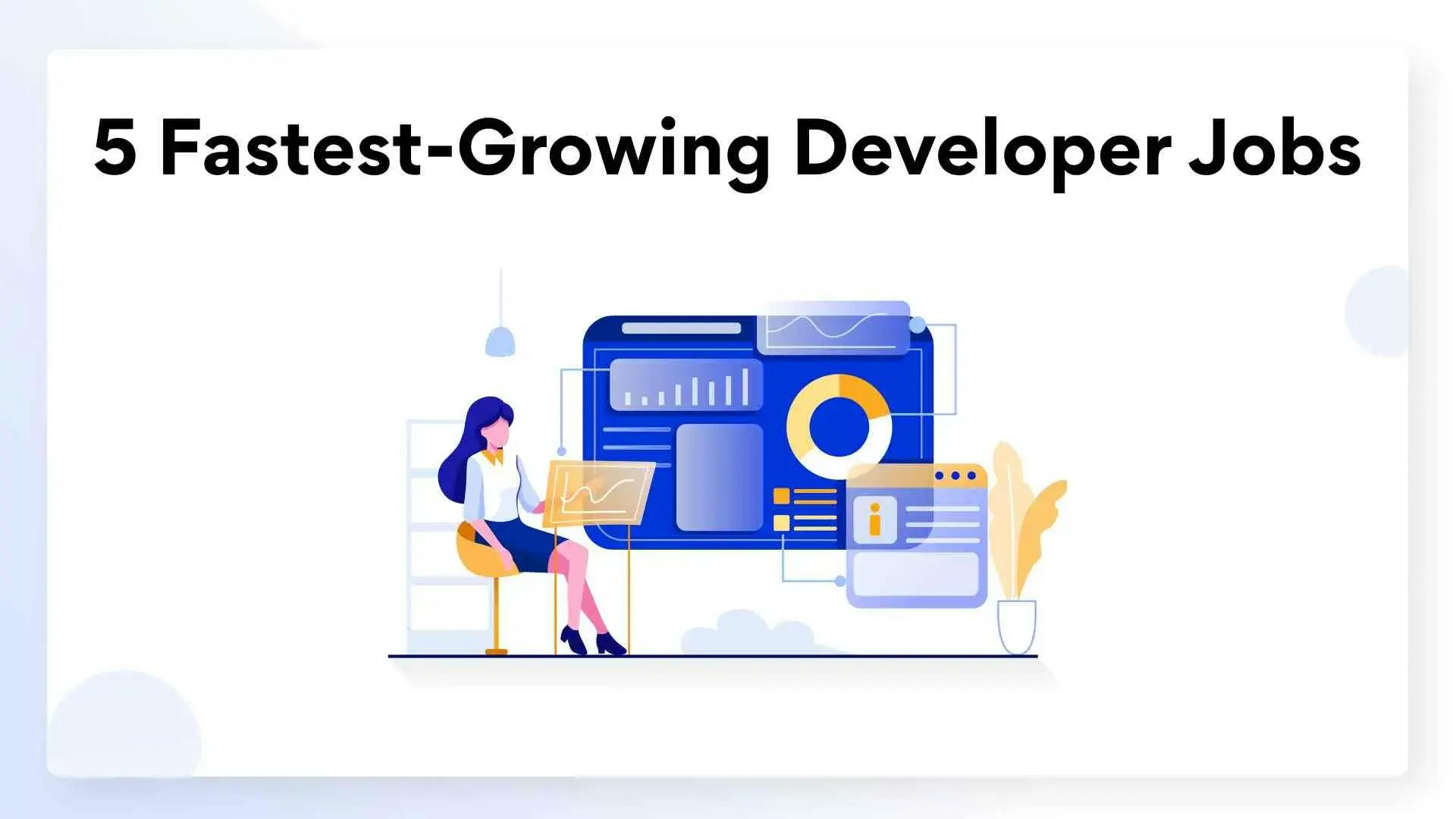Remote Back-end/Data Engineer jobs
We, at Turing, are looking for experienced remote back-end/data engineers for building data processing software and platforms using modern technologies. Get an excellent opportunity to collaborate closely with industry veterans while working at top U.S. companies.
Find remote software jobs with hundreds of Turing clients
Job description
Job responsibilities
- Collaborate with multiple stakeholders to evaluate business requirements
- Maintain a stable server with zero downtime
- Build recyclable and scalable code libraries
- Utilize a systematic approach to plan, create, and maintain data architectures
- Analyze and organize raw data for prescriptive and predictive modeling
- Build and maintain data systems and pipelines
- Enhance data quality, reliability, and security
- Plan and implement data storage solutions
- Conduct complex data analysis and prepare reports
- Develop analytical tools and programs to utilize data pipelines
- Monitor business performance metrics and deliver actionable insights
Minimum requirements
- Bachelor’s/Master’s degree in Data Science/Engineering, Computer Science (or equivalent experience)
- At least 3+ years of experience working as a data engineer or in a similar role
- Experience with Serverless technologies like Azure Functions, AWS Lambda, etc.
- Proficiency in programming languages like Python, Java, Scala, etc.
- Understanding of AI/ML algorithms and their implementation
- Familiarity with stream processing tools like Spark structured streaming, Azure Stream Analytics, etc.
- Understanding of big data tools like Hadoop and Spark
- Previous experience with data pipelines/ETL pipelines
- In-depth knowledge of APIs and client’s SDKs
- Expertise in code versioning tools, like Git, Mercurial, or SVN
- Understanding of SQL/NoSQL database systems
- Fluent in English to communicate effectively
- Ability to work full-time (40 hours/week) with a 4 hour overlap with US time zones
Preferred skills
- Server-side experience with SASS and LESS
- Strong grasp on CS fundamentals including data structures and algorithms, distributed systems, etc.
- Experience with data warehousing solutions
- Understanding of DevOps best practices and AWS infrastructure
- Working knowledge of front-end technologies such as JavaScript, HTML5, and CSS3
- Familiarity with Agile Scrum methodologies
- Excellent organizational and interpersonal skills
Interested in this job?
Apply to Turing today.
Why join Turing?
1Elite US Jobs
2Career Growth
3Developer success support
How to become a Turing developer?
Create your profile
Fill in your basic details - Name, location, skills, salary, & experience.
Take our tests and interviews
Solve questions and appear for technical interview.
Receive job offers
Get matched with the best US and Silicon Valley companies.
Start working on your dream job
Once you join Turing, you’ll never have to apply for another job.

How to become a remote backend/data engineer?
Backend/data engineers create systems that collect, process and transform raw data into information that data scientists and business analysts can understand in various situations. The ultimate goal is to make data more accessible to enterprises to evaluate and improve their performance. They also use the technology required to generate products for the backend of a website.
A backend/data engineer is also in charge of designing the structure of a software application. Examples are front-end developers, testers, product managers, and principal architects. The demand for Backend/Data engineers is increasing as more firms rely on data to make business decisions. Therefore, you shouldn't hesitate to apply for remote backend/data engineer jobs. It is indeed a window of opportunity to grow your career!
What is the scope in backend/data engineering?
Backend/data engineers are in high demand as the number of tech-based businesses increases. Businesses rely on remote backend/data experts to assure software scalability and security. The advancements in AI and machine learning have opened the way for a new breed of entrepreneurs. These business people are doing everything to capitalize on the demand-supply imbalance. So, backend/data engineers will have more opportunities as new products are developed.
Furthermore, as more companies jump on the Big Data bandwagon and mine data for relevant insights, the need for data-related jobs is expanding by the day. Engineers who work with data aren't exempt from this rule. Companies are constantly looking for experienced backend/data engineers who can work with massive amounts of complex data to provide actionable business insights. The income potential of backend/data engineer jobs has also improved, as the task requires a high level of Big Data experience and competence.
What are the roles and responsibilities of a backend/data engineer?
After landing remote backend/data engineer jobs, the following are the significant responsibilities.
- Creation, integration, and maintenance of databases
- Use frameworks for creating server-side applications (backend frameworks).
- Utilize web hosting technologies, cloud computing integration, server-side programming languages
- Development, deployment, and maintenance of content management system
- API integration
- Prevent hacking, and maintain security settings
- Create data and analytics for reporting
- Use technologies for backing up and restoring the files and databases of a website
- Use modern security mechanisms for data security and governance
- Create intricate drawings from complex functional and technological requirements.
- Store data using Hadoop, NoSQL, and other technologies
- Create models and uncover hidden patterns in data pieces
- Integrate data management techniques into the organization's current structure.
- Assist with the development of a robust infrastructure and seamless third-party integration.
How to become a backend/data engineer?
Though the considerable knowledge and skills required for these types of programming jobs may sound frightening, anyone with a genuine interest in the field—along with the ability to perform at least a few of the duties mentioned above—can earn remote backend/data engineer jobs.
There are a few options for acquiring the necessary skills. You can begin by going to college, the most traditional option. A computer science degree will offer you a solid foundation and undeniable credentials when entering the field. The downsides are the cost and time to complete a full college diploma. Furthermore, if you did not earn good grades in high school, you might not be able to go into a college that will look well on your resume for backend/data engineer jobs.
Enrolling in a boot camp program is another option. This can be done in person or online, and the emphasis will be on teaching you the languages you'll need to apply for backend/data engineer positions. Depending on the boot camp, this may be a less expensive option and will almost surely be speedier than a three- or four-year degree.
Whatever path you select for remote backend/data engineer jobs, rest assured that you have a bright future ahead of you, with plenty of vacancies and work opportunities.
Interested in remote backend/data engineer developer jobs?
Become a Turing developer!
Skills required to become a backend/data engineer
The first step is to gain the skills necessary to land high-paying backend/data engineer jobs. Let's take a closer look at each of the technical skills.
1. Python
You'll need to brush up on your Python skills if you want to fetch remote backend/data engineer jobs. Python is one of today's most popular computer languages despite having nothing to do with the snake that inspired its name. The language's prominence is well-deserved. It has been utilized in various industries, including healthcare, finance, and travel, and can handle simple and complicated online applications. Python's syntax has been used to construct apps by well-known industry heavyweights like Spotify, Instagram, Disqus, and Dropbox.
2. Java
Java is a computer language used mainly for backend development. Java is mostly written in an Integrated Development Environment (IDE) before being compiled into bytecode, a low-level code that can be interpreted by a software interpreter rather than humans, making it a more resilient system. In contrast, a JavaScript engine can usually run JavaScript in its original syntax. Java can handle more challenging programming tasks in general than its front-end cousin. Java is a high-performance programming language that supports object-oriented programming and can run on any machine with a Java Virtual Machine, making it ideal for backend and data engineer tasks. Therefore, it is a valuable skill that should be mastered before attending interviews for remote backend/data engineer jobs.
3. PHP
PHP (Hypertext Preprocessor) is a server-side programming language widely used. Unlike Python and Java, PHP is a scripting language, which means it runs scripts (programming instructions) at runtime to automate routine tasks or improve application performance. Knowing PHP will make an aspiring programmer land the best backend/data engineer jobs, even though it is not required in a backend/data engineer position for those familiar with other major programming languages.
4. SQL
Even though technology can quickly become obsolete, SQL is an exception. Since the American National Standards Institute (ANSI) proclaimed SQL, or Structured Query Language, an industry-standard language in 1986, online backend developers have accessed and updated relational databases as needed. SQL enables programmers to quickly enter and delete records, perform database searches, create new tables and stored procedures, and assign permissions to those tables and processes. SQL is a must-know if you ever need to work with relational databases, which you almost surely will if you land remote backend/data engineer jobs.
5. Git
If you're looking for a widely used modern version control system that meets your needs, Git is an excellent option. It is being developed and open-sourced constantly, and it was invented by the same person who founded the Linux operating system. Each developer with a working copy of the code has immediate access to the whole history of changes, making it easy to change and restore the code. Git is one of the most powerful, versatile, and secure online backend development platforms.
6. Front-end
This list of backend/data engineer skills would be insufficient if it didn't include three essential programming languages: HTML, CSS, and JavaScript. While these languages are more typically used on the front end, knowing them can help backend/ data engineers. After all, the three determine everything a visitor sees, from page content to images to scrolling drop-down menus. You might be wondering why these front-end skills are required for a backend/data engineer position. In reality, there isn't much of a distinction between the two occupations. Even if developers specialize in front-end or backend development, the skills required for both web development disciplines overlap to some extent. So, there is no doubt that you should develop a strong understanding of this skill if you want to get hired for remote backend/data engineer jobs.
7. Spark and Hadoop
The Apache Hadoop software library is a platform that enables the distributed processing of enormous data volumes across clusters of devices using fundamental programming principles. It's designed to scale from a single server to tens of thousands of devices, each with its own processing and storage capabilities. The framework supports several programming languages, including Python, Scala, Java, and R. While Hadoop is the most powerful tool for massive data, it does have some drawbacks, such as delayed processing and a high degree of coding. Apache Spark is a data processing engine that supports stream processing, or data input and output in real-time.
8. Data warehouse
A data warehouse is a relational database that can be queried and analyzed. Its purpose is to give you a long-term perspective of data through time. A database, on the other hand, refreshes real-time data regularly. Developers looking for backend/data engineer jobs must be familiar with the most prominent data warehousing solutions, such as Amazon Web Services and Amazon Redshift. AWS is a requirement for practically all backend/ Data engineer positions.
9. Azure
Azure is a Microsoft cloud platform that enables engineers to build large-scale data analytics applications. It streamlines the deployment and support of servers and applications with an easy-to-deploy integrated analytics solution. The bundle includes pre-built services for everything from data storage to advanced machine learning. Since Azure is so popular, some data engineers have chosen to specialize in it.
Interested in remote backend/data engineer jobs?
Become a Turing developer!
How to get remote backend/data engineer jobs?
We have gone through the skill sets required to land remote backend/data engineer jobs. However, the most important thing is to practice as much as possible. Every day, there are new developments. As the field becomes more lucrative, more people will enter it, increasing your competition. If you keep up with the current industry trends, that won't be a problem to advance your career.
Turing offers the best remote backend/data engineer jobs that fit your backend/data engineer career goals. You'll also have the opportunity to hone your talents by working with other skilled developers to solve challenging technical problems. Get full-time, long-term remote backend/data engineer jobs with better remuneration and career opportunities by joining a network of the world's most outstanding backend/data engineers.
Why become a backend/data engineer at Turing?
Elite US jobs
Long-term opportunities to work for amazing, mission-driven US companies with great compensation.
Career growth
Work on challenging technical and business problems using cutting-edge technology to accelerate your career growth.
Exclusive developer community
Join a worldwide community of elite software developers.
Once you join Turing, you’ll never have to apply for another job.
Turing's commitments are long-term and full-time. As one project draws to a close, our team gets to work identifying the next one for you in a matter of weeks.
Work from the comfort of your home
Turing allows you to work according to your convenience. We have flexible working hours and you can work for top US firms from the comfort of your home.
Great compensation
Working with top US corporations, Turing developers make more than the standard market pay in most nations.
How much does Turing pay their backend/data engineers?
At Turing, every backend/data engineer is allowed to set their rate. However, Turing will recommend a salary at which we know we can find a fruitful and long-term opportunity to grow your backend/data engineer career. Our recommendations are based on our analysis of current market conditions and the demand that we see from our customers.
Frequently Asked Questions
Latest posts from Turing
Leadership
Equal Opportunity Policy
Explore remote developer jobs
Based on your skills
- React/Node
- React.js
- Node.js
- AWS
- JavaScript
- Python
- Python/React
- Typescript
- Java
- PostgreSQL
- React Native
- PHP
- PHP/Laravel
- Golang
- Ruby on Rails
- Angular
- Android
- iOS
- AI/ML
- Angular/Node
- Laravel
- MySQL
- ASP .NET
Based on your role
- Full-stack
- Back-end
- Front-end
- DevOps
- Mobile
- Data Engineer
- Business Analyst
- Data Scientist
- ML Scientist
- ML Engineer
Based on your career trajectory
- Software Engineer
- Software Developer
- Senior Engineer
- Software Architect
- Senior Architect
- Tech Lead Manager
- VP of Software Engineering










